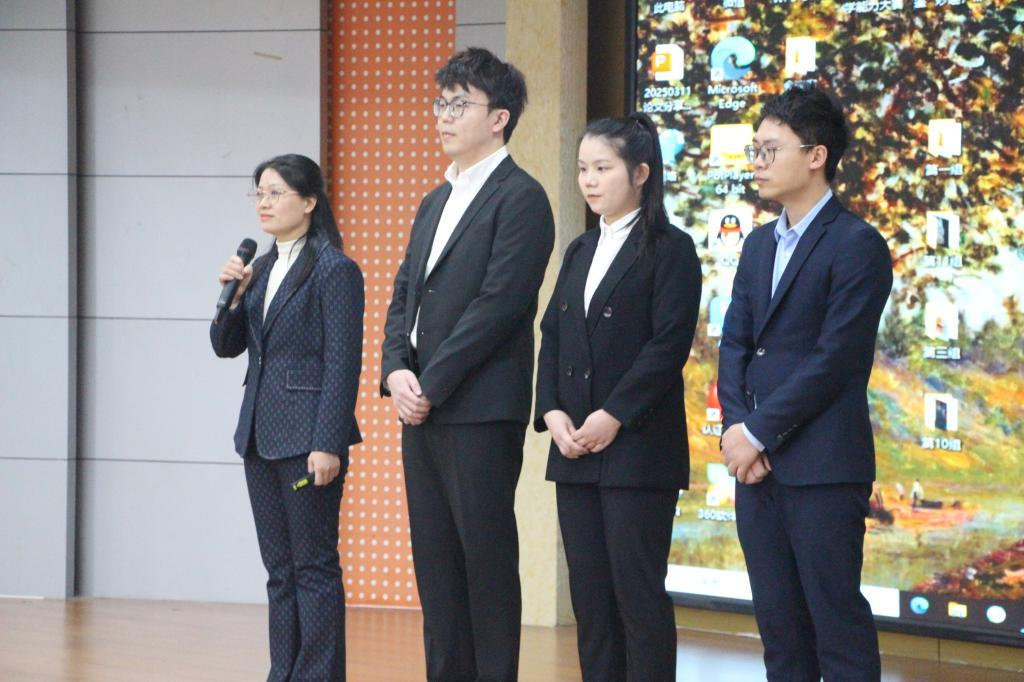To further advance the “Three Reforms” in education and uphold the principle of “promoting teaching, learning, reform, and development through competition,” Quanzhou Medical College held the final round of the 2025 Teaching Competence Competition on March 19, 2025.
The competition invited a panel of esteemed judges, including:
Ms. Li Yuan from Xiamen Medical College, winner of third prize in the First National University Teaching Innovation Competition (2021) and first prize in the First Fujian Provincial University Teaching Innovation Competition;
Mr. Shen Huajie from Fujian University of Technology, lead instructor of the nationally recognized first-class undergraduate course Furniture Design and Manufacturing;
Ms. Lin Biyun from Fujian Medical University, winner of third prize in the 7th National Young Faculty Teaching Competition and first prize in the 7th Fujian Provincial Young Faculty Teaching Competition.
Over 100 faculty members attended the event in person, including Vice President Lin Jingcang, deans and associate deans in charge of teaching from various schools and departments, academic affairs directors, and newly recruited teachers from the past three years. The final was hosted by Ms. Zhang Yushan, Director of the Academic Affairs Office.

This year’s final round featured a format combining teaching implementation report presentation with a live classroom demonstration (without students). Contestants presented in order based on a pre-determined draw, with each group allocated a total of 16 minutes. Drawing from course objectives, curriculum characteristics, and student profiles, the participants showcased their skills in instructional design and classroom management. They elaborated on aspects such as lesson planning, teaching content and strategies, pedagogical methods, outcome assessments, and innovative practices.

The expert judges conducted evaluations based on a comprehensive scoring rubric, ensuring a scientific and objective analysis from multiple dimensions. Experts commended the faculty for their active engagement with teaching reform and innovation, while also identifying several general problems, including:
1. Insufficient coherence between the teaching report and classroom demonstration;
2. Inadequate balance between content depth and popular science;
3. Limited effective application of educational technologies.
To address these concerns, the panel offered the following suggestions:
1.Enhance alignment between implementation reports and teaching demonstrations to ensure theoretical-practical integration;
2. Increase classroom interactivity with methods such as case studies and group discussions;
3. Effectively incorporate new technologies such as AI to avoid superficial usage and truly empower teaching;
4. Optimize integration of curriculum-based ideological and political education, making it more natural and engaging in line with disciplinary features.

In the concluding remarks, Vice President Lin Jingcang highly praised the participating teachers for their effort and performance. Based on the observed presentations, he offered constructive suggestions to further improve teaching methods. He stressed that faculty must not only master solid subject knowledge but also refine their instructional design and classroom delivery—achieving diversified teaching formats, interactive learning environments, and multidimensional teaching tools to continuously improve education quality and student experience.
Teaching competitions help consolidate pedagogical foundations; education refines both knowledge and character. This competition served as a valuable platform for professional growth, fostering exchange and mutual improvement among faculty members. It also contributed to the development of high-level, structured teaching innovation teams within the college. Moving forward, Quanzhou Medical College will continue to enhance the long-term mechanism of “improving teaching through competition,” supporting faculty in deepening the integration of theory and practice, and advancing high-quality educational development with ever-stronger teaching competence.
Translated by Zhuang Bingbing;Proofread by Zheng Shuyun







